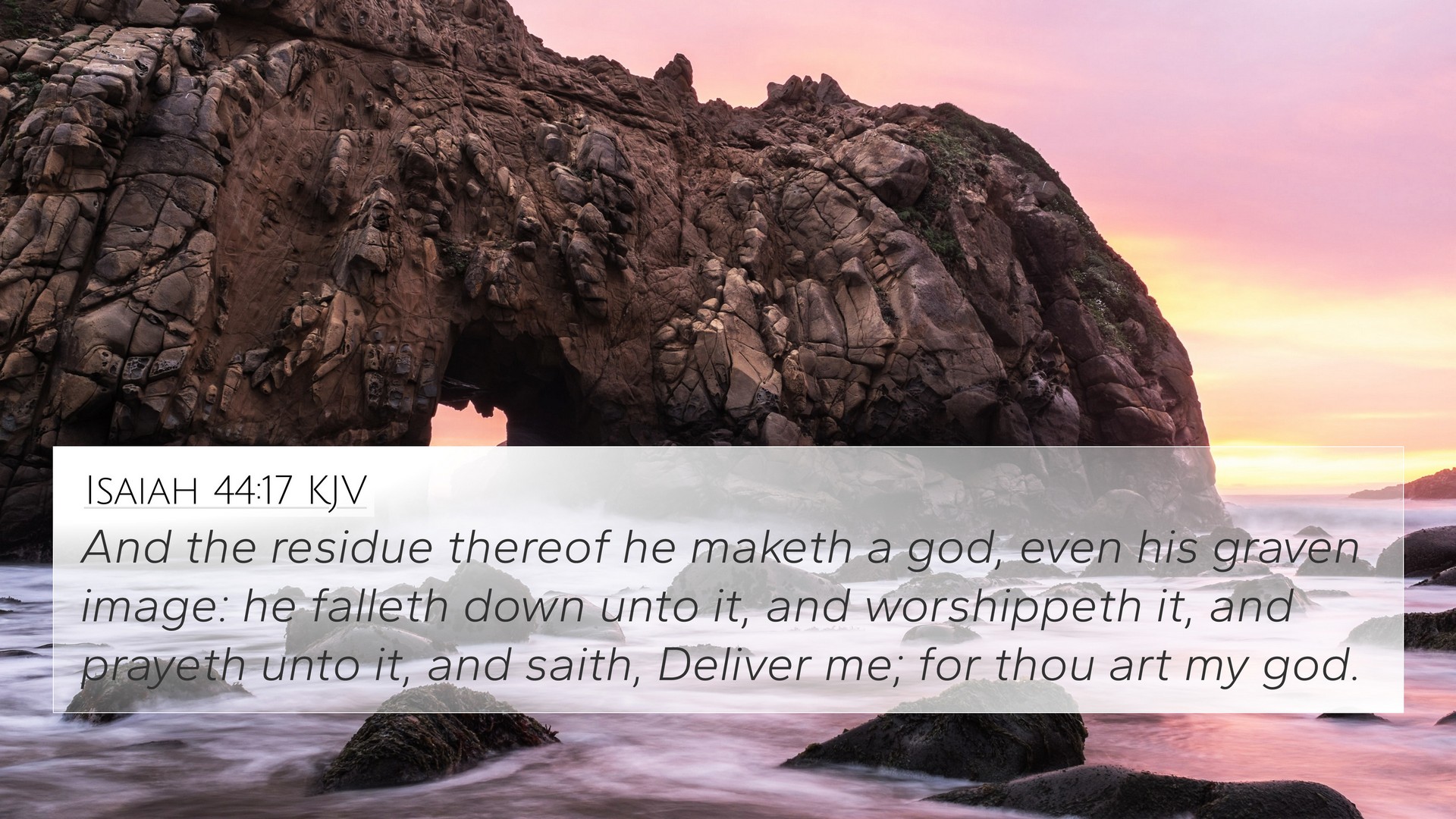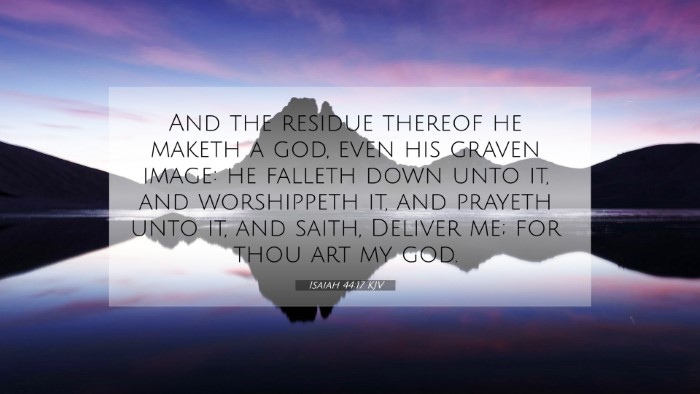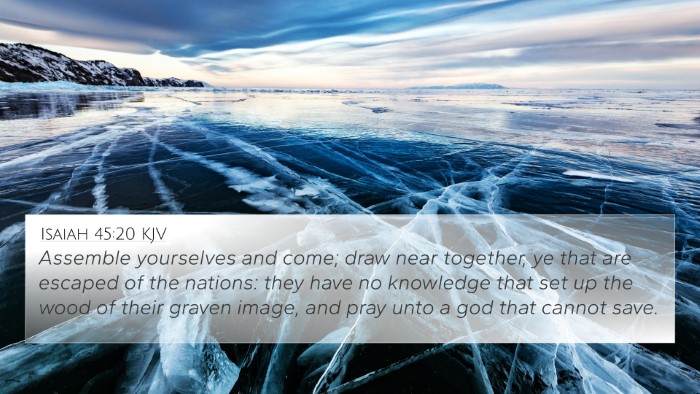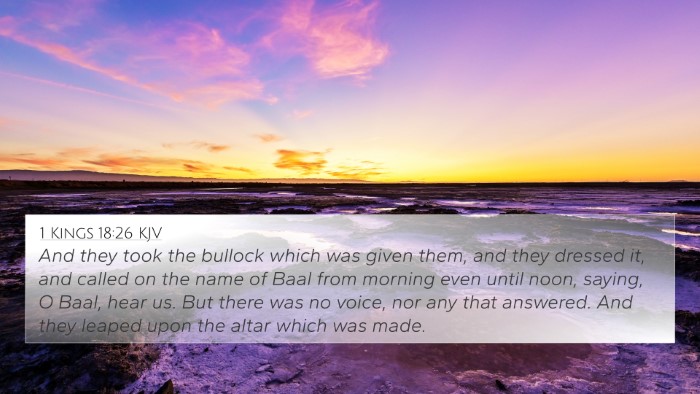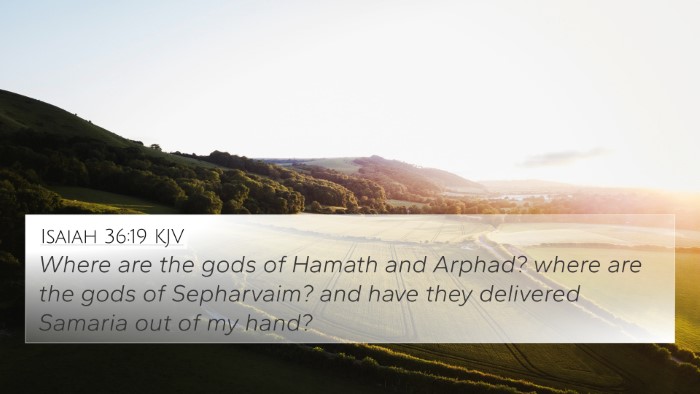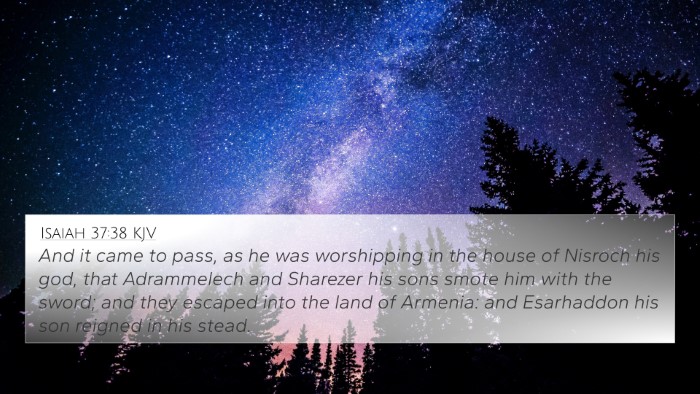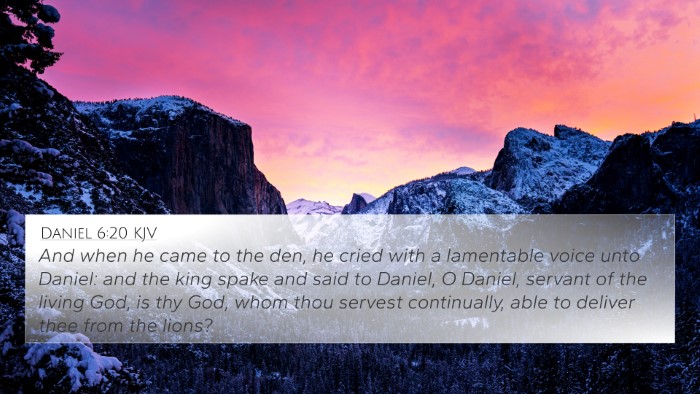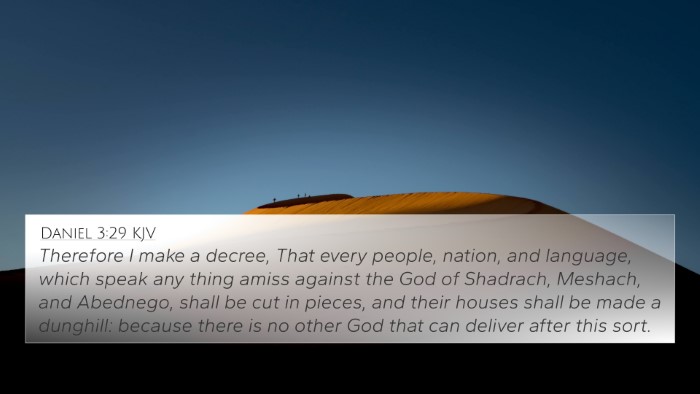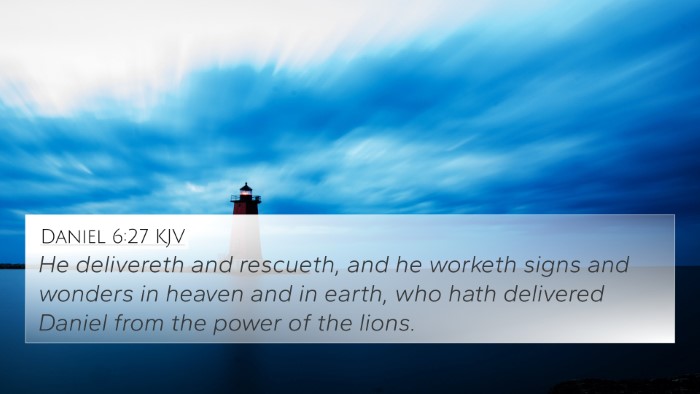Understanding Isaiah 44:17
Isaiah 44:17 states:
"And the residue thereof he maketh a god, even his graven image: he falleth down unto it, and worshippeth it, and prayeth unto it, and saith, Deliver me; for thou art my god."
Summary of Meaning
This verse addresses the folly of idolatry, showing how individuals, in their misguided devotion, can create physical representations of their gods and subsequently worship them. The prophet Isaiah critiques this practice by highlighting the absurdity of recognizing a created object as divine. The deep-rooted theme of this passage speaks to humanity’s tendency to replace the Creator with tangible, yet powerless, idols.
Insights from Public Domain Commentaries
-
Matthew Henry:
Henry emphasizes the irrationality of crafting a god from leftover materials. He illustrates that no power can be found in an object that one can create or manipulate. The essence of true worship lies in spiritual devotion to the Sovereign rather than substituting it with objects of convenience.
-
Albert Barnes:
Barnes provides cultural context, explaining that idol worship was prevalent in ancient times. He elaborates on the human desire for tangible assurance of divine presence, highlighting how such desires lead to spiritual impoverishment. The verse serves as a cautionary tale about misplaced hope and reliance on what is created instead of the Creator.
-
Adam Clarke:
Clarke discusses the theological implications of verse 17, remarking on the moral blindness of those who worship idols. He points out that the act of prayer directed at a manufactured god symbolizes a diversion from genuine faith and trust placed in God’s omnipotence and mercy.
Bible Cross-References
In studying Isaiah 44:17, several cross-references help to illuminate its meaning further:
- Exodus 20:4-5: "Thou shalt not make unto thee any graven image..." - Direct command against idol-making.
- Psalm 115:4-8: "Their idols are silver and gold, the work of men's hands..." - A description of the lifelessness of idols.
- Isaiah 42:8: "I am the Lord: that is my name: and my glory will I not give to another..." - The exclusivity of God's glory challenges idolatry.
- Jeremiah 10:14-15: "Every man is brutish in his knowledge: every founder is confounded by the graven image..." - Critique of idol makers.
- Romans 1:22-23: "Professing themselves to be wise, they became fools, and changed the glory of the uncorruptible God into an image made like to corruptible man..." - The New Testament parallel on idolatry.
- 1 Corinthians 8:4: "We know that an idol is nothing in the world, and that there is none other God but one." - Affirmation of the emptiness of idols.
- Revelation 9:20: "And the rest of the men which were not killed by these plagues yet repented not of the works of their hands, that they should not worship devils, and idols of gold..." - Continues the theme of unrepentant idolatry.
Thematic Connections
This passage not only addresses idol worship in the context of ancient civilizations but also invites modern readers to reflect on the idols in their own lives, whether material possessions, status, or even ideologies, that can distract from their relationship with God. The connections drawn from this verse can be a valuable resource in understanding the overarching narrative of the Scriptures.
Cross-Referencing Bible Study Methods
For those studying this passage in depth, tools for Bible cross-referencing, such as a Bible concordance or cross-reference Bible study guides, can enhance understanding. Effective methods might include:
- Identifying parallel themes in both Old and New Testaments.
- Comparative studies of relevant texts, like Pauline epistles, to provide supporting contextual analysis.
- Inter-Biblical dialogue that links teachings of the Prophets with Apostolic writings to draw comprehensive insights.
- Creating thematic chain references that connect similarly focused verses across the Bible.
Conclusion
Isaiah 44:17 serves as a poignant reminder of the dangers of idolatry and the necessity for pure devotion directed toward God. Through scriptural cross-referencing, one can gain a richer understanding of not only this verse but the themes that resonate throughout the Bible. As believers engage with these texts, they are encouraged to reflect on what true worship looks like and to seek the living God, rather than the dead idols of the world.
